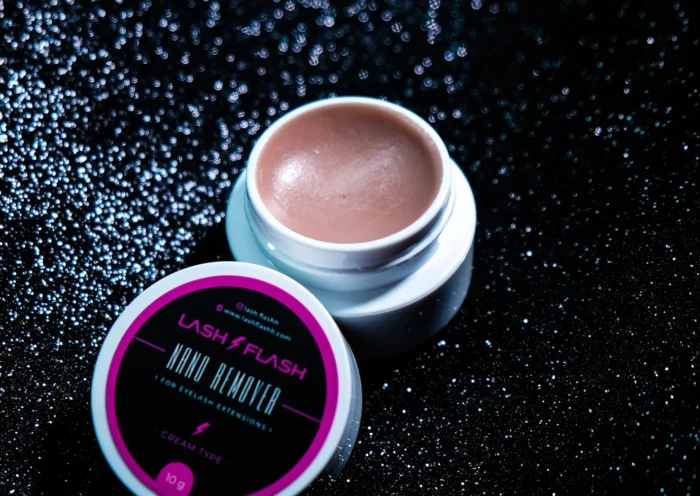Speed up lash application with Lash Flash tools In the competitive world of lash extensions, efficiency is key to success. Lash artists strive to deliver…
What is seasonal AFFECTION disorder
I’m a psychologist and here’s how seasonal AFFECTION disorder could be affecting your sex life – but there are ways to keep your relationship fresh
- The ‘winter blues’ might explain a sudden increase in relationship problems
- READ MORE: This is the WORST week for seasonal affective disorder – experts explain how to fight it
It’s thought that a third of adults in the UK experience seasonal affective disorder (SAD), otherwise known ‘winter depression’ or the ‘winter blues’.
Sufferers often complain of a persistent low mood, difficulty concentrating, and a lack of sleep.
However, while many people are now more aware of how SAD affects people’s mental health, the affects of dark, cold weather on one’s libido is less frequently discussed.
Naturally, a reduced sex drive can strain a romantic relationship, particularly in the presence of an already depressed mood.
In conversation with FEMAIL, London-based Rachel Maclynn, a chartered occupational psychologist and founder of MacLynn, revealed how SAD can damage one’s love life – and says the weather can hinder our willingness to communicate, while also reducing our motivation.
Seasonal affective disorder is thought to affect one third of all adults in the UK, and it can cause issues in romantic relationships
SAD leaves its victims feeling exhausted, dejected, and unmotivated – ‘particularly in romantic relationships’, said Rachel.
‘Communication may dwindle or become turbulent; those experiencing the “blues” may have trouble articulating their feelings to their partner, and sex becomes less frequent (or stops all together) due to a lack of motivation and drive,’ she added.
Everyday interactions with your spouse, including physical bonding, and daily habits can become tiresome, according to the expert.
Rachel said: ‘If you’re feeling low or a lack of motivation, that can make date nights or the sexual side of the relationship difficult to keep up.’
‘Further, complacency may become the new normal, which is toxic to healthy relationships as resentment can build as a product of the lack of effort and mundane feeling of the relationship.’
She added: ‘The general side effects of seasonal affection disorder can be a low sex drive, low energy, irritability, feelings of sadness or guilt, disinterest in your relationship or partner, and a lack of communication within your relationship. These can become bigger issues including turmoil in the relationship, a loss of intimacy, and in extreme cases, breaking up.’
However, sufferers should not feel alone. Given that over half of the population are in a relationship according to the ONS, it can be estimated that issues in the bedroom may be materialising in one-third to one-half of romantic relationships in the UK.
Rachel said: ‘It is more common than we may think but is also unlikely to be widely recognised as the general population are vastly under-educated about the signs and symptoms of seasonal affection disorder.’
Rachel Maclynn (pictured), a chartered occupational psychologist, encouraged sufferers of the condition to focus on self-care
Rachel contended that sufferers should focus on treatment, and how to best mitigate the negative effects of SAD – with self-care playing an essential role.
Rachel suggested a number of routes: ‘Investing in therapy is always an appropriate choice when you are working through personal issues, and relationship coaches may be able to give you tips and tricks on how to implement healthier, more positive practises personally and romantically,’ she said.
If the cost of therapy makes it unfeasible, undertaking activities that encourage a deeper connection will suffice, Rachel explained.
‘Communicate openly, reminding your partner that it is not their fault you are feeling this way, and you are still committed to them and the relationship,’ she said.
‘Take the time to learn you and your partner’s top love languages and make a conscious effort to demonstrate that language to them – as well as them to you. Remind yourself why you fell in love with your partner, try to make the effort to plan date nights even if you don’t feel like it, and maintain some level of intimacy. Try to keep physically connected through handholding, cuddling, and sex when you feel up to it.’
Diet and quality sleep can also reduce feelings of seasonal affective disorder, according the the experts
However, a holistic approach is encouraged, and rather than focusing solely on romance, Rachel encouraged individuals to invest in other aspects of their lifestyle.
She said: ‘When it comes to other areas of life, try to eat healthy, fresh foods as your body needs vitamins and minerals to remain sustained during the dark winter period.
‘At work, do your best to invest your time and energy into the task at hand, and look forward to seeing your partner at the end of the day. By having some time apart, the feeling of fondness towards them may grow, which is a great way to instigate intimacy and connection.
‘Lastly, prioritise your sleep and try to get between seven to nine hours during this time of year.’
Similarly, Dr Naveen Puri, Director of Medical at Bupa Insurance UK, said that those feeling the effects of SAD on their relationship should look inwards and focus on self-care.
‘Getting outdoors, eating well, exercising regularly, journalling your mood, and planning can all work towards helping a person with SAD feel better’, Naveen said.
The doctor further encouraged individuals to note specific symptoms of the condition, so negative feelings are instantly associated with the condition, rather than displaced.
He added: ‘Spotting any patterns of what makes you feel low can help both you and your partner to plan ahead for any difficult days and make time for one another in ways that will work in line with the SAD symptoms.
Source: Read Full Article




